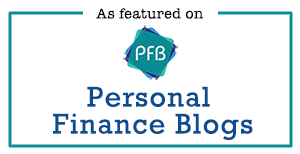MonkWealth is predominantly a personal finance blog. We talked about budgeting in the posts about creating an emergency fund and affording anything by living frugally, and although I briefly touched the idea of saving money, I feel like it deserves a post in itself.
So, let’s take the structured approach we usually take and break down the concept in 5 easy steps.
So, how do you actually get rich?
Step 1: Want to do it
This is where it all begins.
The main reason many people are poor, living paycheck to paycheck, or drowned in debt is because they don’t really want it.
Nothing wrong with that.
But the bad part is that it’s rarely a conscious decision and is usually something that’s just adopted on auto-pilot. Unfortunately, most of the time not because of positive factors, but because of things like social pressure, low self-esteem, a succubus, or simply ignorance.
Just the thought about changing their financial situation can be a challenge for many people. It’s simply easier to not think about it while mindlessly try to fulfill their consumer needs – and failing every time because they keep growing.
So, first step: want to do it! You need to have a burning desire to live debt-free, with an emergency fund to keep you free of worries, and grow your net-worth month after month. And this is just the first step.
However, if owning a fancy watch is more appealing than the peace of mind financial freedom can provide, just keep reading. We’ll cover both consumerism and trying to impress people below. But first, let’s tackle debt.
Step 2: Pay off debt
Borrowing money is expensive. If you’ve never done it – great job! If you did and are wondering where your money went at the end of each month, paying it off will answer your question.
Basically, people who indulge into the consumer lifestyle are prone to getting hypnotized by cliche marketing techniques and overspending. It’s fine if you want to occasionally treat yourself, but once you’re not actually able to afford whatever you bought – it becomes a problem. Getting “free money” today, means borrowing it from your future self. And every cent you spend prematurely will cost you much more in the future – it will outpace inflation and will be associated with even greater opportunity cost. Let me explain why.
The interest rates on consumer debt are inhumane. Period.
I don’t say it in a negative sense, though. The loan originators’ goal is to maximize profits and getting into the trap is solely a responsibility of the person taking a loan. So, next time when you see a double-digit interest rate – look the other way. You most probably don’t even need it.
So how to actually pay off debt, in case you’re lost in all the automatic monthly payments leaving you broke every month? Get a piece of paper and:
- Make a list of all your loans
- Order them by interest rate (from highest to lowest)
- Do everything you can to pay off the top item(s)
And let’s be honest… This is neither something hard to grasp nor you need to understand complex financial concepts in order to do it… Simply do whatever it takes in order to eliminate consumer debt ASAP. And I can’t stress enough how important this is – I’d even go this far (and this is a sincere piece of advice with good intentions): don’t spend money on anything other than food and shelter for a month (don’t go out for a month, don’t smoke or drink for a month, no desert for a month, ignore discounts for a month, etc.).
Taking control of your finances means taking control over your life in the capitalistic society we live in. And after some time, you’ll be grateful when you’ll wake up with a clear head, free of financial worries, and enjoy being worth 0$. From then on, never use money you don’t have for any consumer urges you may experience in the future.
And by the way, not every debt is bad. It’s a really important part of the economic machine and leveraging it can lead to great financial decisions. But in case you’re still struggling with saving money, let’s leave this topic for another post.
Step 3: Don’t try to impress other people
This is what makes most people behave like children. Personal finance aside, living to impress other people is a rabbit hole without a final destination. You’ll never be truly fulfilled if you get satisfaction by other people’s admiration, especially if they’re fiercely fighting for the same goal. It’s a lose-lose scenario and once you’re an adult it’s time to get out of there.
Especially if you’re taking away from the people you love when trying to impress the people you don’t. Spending on experiences with your family will feel much better.
So, if you’re a part of a community in which every member has a social contract to complete with the others by flashing fancy items or keeping up with the other members’ cars – get away from that toxic environment ASAP!
You won’t change other people or the human nature itself, but you can change how you approach personal finance. And I said it before: there is nothing that contributes to one’s reputation like a fat pile of FU money. You can actually impress people by not buying the things you buy to impress them and saving the amount… Mind blown, right?
And lastly, ask yourself this question: would I buy a yacht if I can’t show it to anyone?
Really, try to answer it…
Please don’t start reading Step 4 until you’ve answered the question.
And if you’re actually into yachts, try it with a Ferrari, a Rolex watch, or any liability that leaves you with less food on the table just to win other people’s admiration.
Answer the question.
Step 4: Consumerism and subscriptions
Step 3 was the big one. Once you’re beyond paying off debt and focusing on yourself instead of the others, this becomes more personal. Saving money comes naturally, but many people would need a last push to start doing it. No judgement here as well – financial literacy is not something that we learn in school.
So what’s the last step before we’re able to see our accounts grow month after month?
It’s managing consumer habits and subscriptions. Similarly to paying off debt, you’ll need to get a piece of paper and:
- List all the services you’re subscribed to
- Unsubscribe from all services you haven’t used in the last month
- Call each of the service providers that are left and ask for a cheaper package
If you want to go the extra mile, here are a few bonus steps: unsubscribe from all services that provide entertainment (maybe keep your top picks if you insist) and unsubscribe from all services that don’t add value to your life (cable TV & landline phone number maybe?).
Now when you’re in total control of your cash-flow, let’s manage the consumer compulsions.
You can do this simply by following this simple rule. Whenever you get an urge to buy something, ask yourself “did I plan to buy this before seeing it?“. If the answer is yes, go get it – saving money shouldn’t be done at the cost of sacrificing your well-being. But if the answer is no, fight the urge and don’t buy it. Believe it or not, that’s it!
I’d use a mnemonic to associate the urge of buying an item with the question and it will keep you on track each time you need to fight a bad habit. And while we’re on the topic of bad habits, ditch all of them! Not only it will be good for your health and long-term well-being, but it will also improve your financial situation. Here is a list of (optional) things that you can eliminate of your (daily) life:
- Chocolates & sweets
- Any types of snacks
- Juices or energy drinks
- Alcohol (including beer, needless to say)
- Tobacco
This list is copied from one of my first posts, and there is another pearl in it:
You (most probably) don’t need new clothes, gadgets, phone, or household items. I know I don’t! Unsubscribe from the consumer lifestyle, at least until you can afford it by not heading towards debt when unexpected expenses would appear.
Let me leave you with another quote from my Financial Update from January:
I rarely have consumer instincts kicking in, but when they come I welcome them and treat myself as my subconscious desired. However, I make sure that boredom is not the origin of these needs – when it is, I just shut it down. While waiting for my flight at the airport in Vienna, I was reading something and felt an urge to visit Starbucks. I didn’t.
Step 5: Pay yourself first
This is the most important step from the whole post. Maybe apart from paying off debt… If you have consumer debt, pay it off before paying yourself. But wait… What does actually paying yourself first even mean?
Paying yourself first means that once you get paid, you shouldn’t think about buying a new pair of shoes, throwing a stupid party, or any fancy household item that will only end up costing you money. And I’m not talking about consumerism this time – you shouldn’t think about your family, food, bills, rent, or mortgage payments as well! The only thing you should consider when getting paid is you. You should pay yourself first.
Get a percentage of your salary (5% is a great place to start, but try to maximize it as much as possible) and dump it in a savings account or anywhere out of your compulsive reach… Or simply don’t spend it – which is my preferred approach.
Think about how genius this actually is! Instead of approaching the problem from the other side (by tracking your spending, using look-ahead services, or budget daily) just to save a percentage from your salary, why don’t you just do it instead? ✓
So, get paid, save a percentage of your salary immediately, and don’t feel any guilt about spending the rest in whichever way you like. Of course, supplementing this with the other steps will make you even richer, but it’s your call at the end. Remember, paying yourself first will make you save money on autopilot. And once an emergency arises, you won’t have to rely on friends, family, or banks to get funding.
That’s how you get actual control over your life.
What’s next?
Once you start saving, you’ll see that it’s a self-supporting cycle that will encourage you to keep on doing it. If you’re worth establishing an emergency fund first. Maintain your standard of living after you’ve done it and witness how saving money will make you financially intelligent automatically. It’s a beautiful thing.
Saving is one side of the spectrum of becoming rich though. The other side is increasing your income. This post won’t touch that part, but will remind you to not fall into the trap of lifestyle inflation.
Lifestyle inflation means increasing your expenses as your salary rises. Avoid that. Unless your life needs a serious upgrade, try to resist keeping up with the Joneses and enjoy accumulating a serious amount of wealth in the process.
I’m not advocating taking celebrities as an example in general. That being said, this is a nice segment of a Jamie Foxx interview on Joe Rogan Experience where he talks about a party he threw for 400$. It starts at around 2 minutes.







 PayPal.me/MonkWealth
PayPal.me/MonkWealth